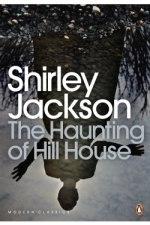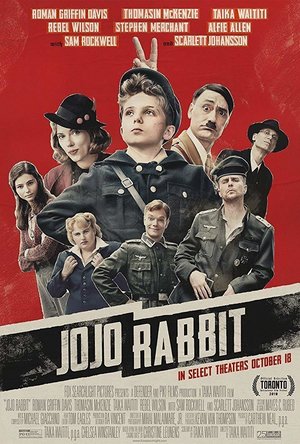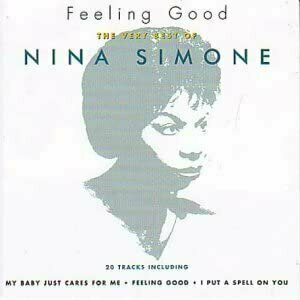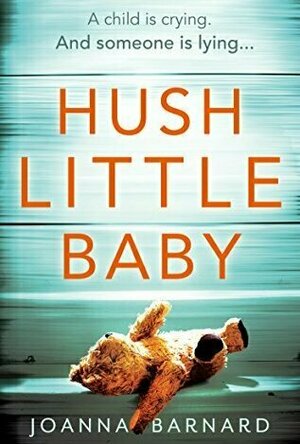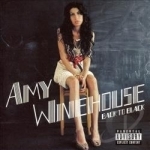Search
Search results
EmersonRose (320 KP) rated The Haunting of Hill House in Books
Nov 20, 2019
The Haunting of Hill House was written by Shirley Jackson in 1959. Since then it has been heralded as a milestone in the horror genre. The book takes its reader on an unnerving adventure with four characters who chose to spend a summer in a haunted house.
Dr. Montague wishes to track the supernatural and write a factual paper on hauntings. He enlists the help of two women who he believes to have connections with the unnatural. The first is Theodora lighthearted and the center of attention, and Eleanor, quiet and fragile but ready for something in her life to change. Their party is completed by Luke, the charming heir to Hill House. The unnerving atmosphere of the house puts them all on edge from the moment they see it, but things only get stranger as the power of the house grows.
I was drawn to this book for several reasons. First, it was the week of Halloween, why not get into the spirit. But Hill House had begun to orbit in my life before this. I myself read The Lottery in my eighth-grade creative writing class. I also recently read a book called House of Leaves by Mark Z. Danielewski, which is also a haunted house story and Shirley Jackson’s book began getting recommended to me. As I started to read the book, I began to have this feeling best expressed through a quote from the book itself: “Am I walking toward something I should be running away from?”
When I started reading the story, I could not help but let my thoughts fly trying to solve 13388the mystery myself. The language of the book captured my attention completely. The descriptions built up the house so vividly in my imagination. The haunting Victorian atmosphere is both beautiful and disturbing. The unnerving and uncomfortable were created, kept up, and made the book hard to put down. I loved wondering about Mrs. Dudley, questioning the other characters, and imagining what could be knocking on the door.
Eleanor, as the point of view character, is the easiest to identify with. Her paranoia, fear, and anxiety are central parts to her identity, but she also seems to the most real in her reactions to both the house and the other characters. He relationships with each of the other four are almost dreamlike in the way level of closeness she has with them ebbs and flows. I could not help but feel for Eleanor, especially when it seems she is being targeted by the house.
I found this book to be enthralling. The horror genre is not my go-to read, but Shirley Jackson has a way with words and intimate feelings that makes me want to read through every book she has ever written. The psychological descent of the characters is natural and terrifying to behold. Now that I have read it, I cannot help but see Jackson’s influence on horror and psychological thriller. I am very pleased with having finally read this book and would highly recommend it as a must read. Only beware, the house as power and no one’s mind is safe.
Dr. Montague wishes to track the supernatural and write a factual paper on hauntings. He enlists the help of two women who he believes to have connections with the unnatural. The first is Theodora lighthearted and the center of attention, and Eleanor, quiet and fragile but ready for something in her life to change. Their party is completed by Luke, the charming heir to Hill House. The unnerving atmosphere of the house puts them all on edge from the moment they see it, but things only get stranger as the power of the house grows.
I was drawn to this book for several reasons. First, it was the week of Halloween, why not get into the spirit. But Hill House had begun to orbit in my life before this. I myself read The Lottery in my eighth-grade creative writing class. I also recently read a book called House of Leaves by Mark Z. Danielewski, which is also a haunted house story and Shirley Jackson’s book began getting recommended to me. As I started to read the book, I began to have this feeling best expressed through a quote from the book itself: “Am I walking toward something I should be running away from?”
When I started reading the story, I could not help but let my thoughts fly trying to solve 13388the mystery myself. The language of the book captured my attention completely. The descriptions built up the house so vividly in my imagination. The haunting Victorian atmosphere is both beautiful and disturbing. The unnerving and uncomfortable were created, kept up, and made the book hard to put down. I loved wondering about Mrs. Dudley, questioning the other characters, and imagining what could be knocking on the door.
Eleanor, as the point of view character, is the easiest to identify with. Her paranoia, fear, and anxiety are central parts to her identity, but she also seems to the most real in her reactions to both the house and the other characters. He relationships with each of the other four are almost dreamlike in the way level of closeness she has with them ebbs and flows. I could not help but feel for Eleanor, especially when it seems she is being targeted by the house.
I found this book to be enthralling. The horror genre is not my go-to read, but Shirley Jackson has a way with words and intimate feelings that makes me want to read through every book she has ever written. The psychological descent of the characters is natural and terrifying to behold. Now that I have read it, I cannot help but see Jackson’s influence on horror and psychological thriller. I am very pleased with having finally read this book and would highly recommend it as a must read. Only beware, the house as power and no one’s mind is safe.
Sophia (Bookwyrming Thoughts) (530 KP) rated In The Shadow of Blackbirds in Books
Jan 23, 2020
I had this random tendency to not write a review, at all, for Cat Winters' <i>In the Shadow of Blackbirds</i>, to which the copy at the library had an extremely sucky synopsis (though the design IS pretty):
In a city filled with the dead and dying,
while a nightmarish war rages halfway across the world,
the grieving look for answers in photographs and séances.
It's 1918. San Diego.
And a girl who doesn't believe in spirits
steps off the train and into a new life...
Apparently the one sentence synopsis provided by the publisher (yes, I read those) is a lot more helpful than this inside jacket cover synopsis, which gives a the book a mysterious aura that separates it from the other 2015-2016 Gateway Award Nominees.
The book, albeit a fantastically creepy concept, apparently goes from one end of the spectrum to the other end of the spectrum by the end of the book.
The so-called beginning of the spectrum I'm speaking of is the absolute, complete paranoia of the time period. Literally all of the characters depicted throughout the book was highly addicted to onions, spirit photography, or shunning the Germans. Of course, the more historical fiction and actual historical texts I read of World War I, I sometimes find it highly hilarious mainly due to the simple fact that Americans actually came from Europe and the majority of them have German blood (okay, a lot of ya'll have European blood). Funny how that actually works.
The only characters that I actually liked was Mary Shelley Black (thankfully the main character) and Stephen Embers (or rather, Live Stephen and not Dead Stephen, who actually spent a good few times squishing Mary Shelley). Both Mary Shelley and Stephen were more "adventurous" (logic and science) and tended to stray from the rest of the pack. On the unfortunate side... dear old Stephen Embers is apparently dead, which eventually results in the book being one of your typical ghost stories/shows where the dead have unfinished business.
However, in Stephen's case, all Mary Shelley seems to get from him is something about blackbirds - blackbirds attacking him.
The other end of the spectrum, as the book continues and Mary Shelley gets closer to finding out Stephen's "unfinished" business, is apparently the book going from the main character being the most logical and unparanoid one to being one of the paranoid ones. She goes from being one of the logical ones who reasons and questions everything to someone who "freaked" out over a cough or "drowning" herself in onions. Onions are apparently the garlic of the book while the vampire is the influenza.
Simply put, <i>In the Shadow of Blackbirds</i> started to become a little bit too "insane" for my taste and for me to handle at certain points until the very end. Cat Winters' debut novel was a chilling read that left me walking away feeling mainly satisfied with how Stephen and Mary Shelley eventually come to terms with their relationship.
<a href="https://bookwyrmingthoughts.com/review-in-the-shadow-of-blackbirds-by-cat-winters/"; target="_blank">This review was originally posted on Bookwyrming Thoughts</a>
In a city filled with the dead and dying,
while a nightmarish war rages halfway across the world,
the grieving look for answers in photographs and séances.
It's 1918. San Diego.
And a girl who doesn't believe in spirits
steps off the train and into a new life...
Apparently the one sentence synopsis provided by the publisher (yes, I read those) is a lot more helpful than this inside jacket cover synopsis, which gives a the book a mysterious aura that separates it from the other 2015-2016 Gateway Award Nominees.
The book, albeit a fantastically creepy concept, apparently goes from one end of the spectrum to the other end of the spectrum by the end of the book.
The so-called beginning of the spectrum I'm speaking of is the absolute, complete paranoia of the time period. Literally all of the characters depicted throughout the book was highly addicted to onions, spirit photography, or shunning the Germans. Of course, the more historical fiction and actual historical texts I read of World War I, I sometimes find it highly hilarious mainly due to the simple fact that Americans actually came from Europe and the majority of them have German blood (okay, a lot of ya'll have European blood). Funny how that actually works.
The only characters that I actually liked was Mary Shelley Black (thankfully the main character) and Stephen Embers (or rather, Live Stephen and not Dead Stephen, who actually spent a good few times squishing Mary Shelley). Both Mary Shelley and Stephen were more "adventurous" (logic and science) and tended to stray from the rest of the pack. On the unfortunate side... dear old Stephen Embers is apparently dead, which eventually results in the book being one of your typical ghost stories/shows where the dead have unfinished business.
However, in Stephen's case, all Mary Shelley seems to get from him is something about blackbirds - blackbirds attacking him.
The other end of the spectrum, as the book continues and Mary Shelley gets closer to finding out Stephen's "unfinished" business, is apparently the book going from the main character being the most logical and unparanoid one to being one of the paranoid ones. She goes from being one of the logical ones who reasons and questions everything to someone who "freaked" out over a cough or "drowning" herself in onions. Onions are apparently the garlic of the book while the vampire is the influenza.
Simply put, <i>In the Shadow of Blackbirds</i> started to become a little bit too "insane" for my taste and for me to handle at certain points until the very end. Cat Winters' debut novel was a chilling read that left me walking away feeling mainly satisfied with how Stephen and Mary Shelley eventually come to terms with their relationship.
<a href="https://bookwyrmingthoughts.com/review-in-the-shadow-of-blackbirds-by-cat-winters/"; target="_blank">This review was originally posted on Bookwyrming Thoughts</a>
Emma @ The Movies (1786 KP) rated Jojo Rabbit (2019) in Movies
Jan 11, 2020
If you asked me why I skipped seeing this one twice before it's UK release I wouldn't be able to give you a proper answer. I guess I just didn't fancy it, and the second time Odeon outdid Cineworld with a really early Parasite screening so that felt like the sensible choice instead.
Jojo wants to be a good German, but as he's about to go off to a Nazi Youth Camp he worries about how he'll do. Luckily he has a friend to help him through it, Adolf Hitler. The Fuhrer is always with him in spirit.
Recovering at home after an accident Jojo discovers that he's not alone in the house. He discovers Elsa hiding in a wall space upstairs, hidden by his mother. Jojo is torn, he should report her to the authorities but that could be bad news for him and his mother.
I was genuinely surprised about who was turning up to see this. There were a lot of family groups and groups of teenagers. It shouldn't really shock me, everyone has their own interests in a wide variety of things, but I wasn't expecting to see such young people coming to see it.
By far my favourite thing about this film was Sam Rockwell as Captain Klenzendorf, a little bitter with his situation and begrudgingly training the kids for the battles ahead, he's making the best of a bad situation. He's funny, and more importantly, glorious in battle. From the ridiculous to a surprisingly moving scene at the end, he was the performance of the whole film for me.
Child actors have their ups and downs, some have the knack right out of the gate but I didn't really get that from Roman Griffin Davis or Archie Yates. Both got some good moments out of the script but their delivery and the consistency of the characters didn't carry through it as a whole.
Thomasin McKenzie however brought a little something extra to her role of Elsa. I didn't mind her slightly more serious parts in this but it was difficult to get much more out of it when so much revolved around her and Jojo in scenes together. I don't like "awkward" and some of the scenes are *shudder*.
I can't really talk about the film without talking about Taika Waititi as Hitler. I found him quite amusing to begin with but when the character started to change as Jojo did I felt it was a little over the top.
Dramatic moments pop up when you really aren't expecting them, two in particular stuck with me afterwards. One, as I mentioned, with Sam Rockwell and the other with Scarlett Johansson. Rockwell's was a complete surprise, but ScarJo's, though unexpected, was overplayed a lot in the build up.
Jojo Rabbit is a very odd film, I didn't know what to expect at all really and the final result left me no wiser. Entertaining yes, but not something I would have to see again.
Originally posted on: https://emmaatthemovies.blogspot.com/2020/01/jojo-rabbit-movie-review.html
Jojo wants to be a good German, but as he's about to go off to a Nazi Youth Camp he worries about how he'll do. Luckily he has a friend to help him through it, Adolf Hitler. The Fuhrer is always with him in spirit.
Recovering at home after an accident Jojo discovers that he's not alone in the house. He discovers Elsa hiding in a wall space upstairs, hidden by his mother. Jojo is torn, he should report her to the authorities but that could be bad news for him and his mother.
I was genuinely surprised about who was turning up to see this. There were a lot of family groups and groups of teenagers. It shouldn't really shock me, everyone has their own interests in a wide variety of things, but I wasn't expecting to see such young people coming to see it.
By far my favourite thing about this film was Sam Rockwell as Captain Klenzendorf, a little bitter with his situation and begrudgingly training the kids for the battles ahead, he's making the best of a bad situation. He's funny, and more importantly, glorious in battle. From the ridiculous to a surprisingly moving scene at the end, he was the performance of the whole film for me.
Child actors have their ups and downs, some have the knack right out of the gate but I didn't really get that from Roman Griffin Davis or Archie Yates. Both got some good moments out of the script but their delivery and the consistency of the characters didn't carry through it as a whole.
Thomasin McKenzie however brought a little something extra to her role of Elsa. I didn't mind her slightly more serious parts in this but it was difficult to get much more out of it when so much revolved around her and Jojo in scenes together. I don't like "awkward" and some of the scenes are *shudder*.
I can't really talk about the film without talking about Taika Waititi as Hitler. I found him quite amusing to begin with but when the character started to change as Jojo did I felt it was a little over the top.
Dramatic moments pop up when you really aren't expecting them, two in particular stuck with me afterwards. One, as I mentioned, with Sam Rockwell and the other with Scarlett Johansson. Rockwell's was a complete surprise, but ScarJo's, though unexpected, was overplayed a lot in the build up.
Jojo Rabbit is a very odd film, I didn't know what to expect at all really and the final result left me no wiser. Entertaining yes, but not something I would have to see again.
Originally posted on: https://emmaatthemovies.blogspot.com/2020/01/jojo-rabbit-movie-review.html
Kirk Bage (1775 KP) rated Jim & Andy: The Great Beyond (2017) in Movies
Mar 3, 2020
Documentaries, they can’t be trusted, can they? There is always a purpose and a message the film-maker’s have manufactured and edited to suit themselves, I find. They often leave you with more questions than answers. The best ones are open to interpretation enough to allow you in; allowing the source material to speak for itself. The worst ones rely on talking heads too much and can feel very manipulative.
Jim and Andy: The Great Beyond, is fortunately much more of the former than the latter. However, two days after watching this mind-blowing exposé of how Jim Carrey behaved on set of the excellent Man On The Moon, playing genius / lunatic Andy Kaufman, I am still left pondering what to think of it all. Is Carrey an ego maniac who belongs in a straight-jacket, or is he a hippie genius, dedicated to his art, who would do anything to achieve a perfect performance?
It focuses on a fully bearded Carrey reliving his memories of 20 years ago. Reinforced by a plethora of behind the scenes footage, which at turns is hilarious, shocking, confusing and revealing, in uncomfortable and fascinating ways. The premise is that at the time of being cast Kaufman’s spirit inhabited Carrey, allowing him to channel the actual man, and BE him, rather than merely play him!
Whatever your thoughts on method acting, and how indulgent that can be, it is always astonishing to see just how far he went! And why everyone else allowed him to get away with it? Director Milos Forman is forced to cope with never talking to “Jim”, only to “Andy”, and seems often at the point of break-down. Fellow cast members seem to deal with it in different ways too. Danny DeVito seems in awe; Courtney Love seems to embrace it; Paul Giamatti seems very uncomfortable. But the whole show goes ahead with Carrey as king. Simply extraordinary!
The thing is, both 1999 Jim and 2017 Jim never seem entirely insane, but rather totally in control and eloquent. It seems as if every “crazy” thing he did was a choice, conscious or unconscious, that as an actor he was happy to be part of; as if the performance was all that mattered. There have always been mental health questions about Carrey, and this throws a bright spotlight on his technique, personality and self-awareness. At some point you just have to say “wow” and to a degree applaud it.
Your enjoyment of it hinges on how much of a Carrey fan you are? If you have never liked or got him as a performer then you will be screaming at the screen in consternation. If you love his work then this is indespesible viewing! Either way, there is something wondrous about it! Just consider, Carrey won a Golden Globe for this role, and remains the only person ever to do so not to be Oscar nominated…
There is also a suggestion the whole thing is a joke, in typical Kaufman style, using the footage to create a trick on the audience… Documentaries, they can’t be trusted, can they? You decide.
Jim and Andy: The Great Beyond, is fortunately much more of the former than the latter. However, two days after watching this mind-blowing exposé of how Jim Carrey behaved on set of the excellent Man On The Moon, playing genius / lunatic Andy Kaufman, I am still left pondering what to think of it all. Is Carrey an ego maniac who belongs in a straight-jacket, or is he a hippie genius, dedicated to his art, who would do anything to achieve a perfect performance?
It focuses on a fully bearded Carrey reliving his memories of 20 years ago. Reinforced by a plethora of behind the scenes footage, which at turns is hilarious, shocking, confusing and revealing, in uncomfortable and fascinating ways. The premise is that at the time of being cast Kaufman’s spirit inhabited Carrey, allowing him to channel the actual man, and BE him, rather than merely play him!
Whatever your thoughts on method acting, and how indulgent that can be, it is always astonishing to see just how far he went! And why everyone else allowed him to get away with it? Director Milos Forman is forced to cope with never talking to “Jim”, only to “Andy”, and seems often at the point of break-down. Fellow cast members seem to deal with it in different ways too. Danny DeVito seems in awe; Courtney Love seems to embrace it; Paul Giamatti seems very uncomfortable. But the whole show goes ahead with Carrey as king. Simply extraordinary!
The thing is, both 1999 Jim and 2017 Jim never seem entirely insane, but rather totally in control and eloquent. It seems as if every “crazy” thing he did was a choice, conscious or unconscious, that as an actor he was happy to be part of; as if the performance was all that mattered. There have always been mental health questions about Carrey, and this throws a bright spotlight on his technique, personality and self-awareness. At some point you just have to say “wow” and to a degree applaud it.
Your enjoyment of it hinges on how much of a Carrey fan you are? If you have never liked or got him as a performer then you will be screaming at the screen in consternation. If you love his work then this is indespesible viewing! Either way, there is something wondrous about it! Just consider, Carrey won a Golden Globe for this role, and remains the only person ever to do so not to be Oscar nominated…
There is also a suggestion the whole thing is a joke, in typical Kaufman style, using the footage to create a trick on the audience… Documentaries, they can’t be trusted, can they? You decide.

Global Yoga Academy
Health & Fitness
App Watch
***Voted "Best Yoga App 2016" by Healthline*** Introducing the ultimate yoga app to inspire you...
health and fitness
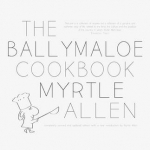
The Ballymaloe Cookbook
Book
First published in 1977, The Ballymaloe Cookbook espouses a food philosophy rare for its time, but...
Tim Booth recommended Feeling Good: The Very Best of Nina Simone by Nina Simone in Music (curated)
BookInspector (124 KP) rated Hush Little Baby in Books
Sep 24, 2020
More reviews can be found on https://bbookinspector.wordpress.com
This is one of those books which left me confused, whether I liked it or not. I read the name of this book and the blurb, and was ready for some great mystery, maybe some horror; unfortunately, I did not get any of it… What I got, was incredibly strong and interesting characters.
The narrative of this book was told by Sally, Richard and Martha. They are a family; Richard married Sally after having an affair with her, and they took in Martha - Richard’s daughter from first marriage. After night out, Sally is woken up by her husband and whimpering ten month old Oliver, who’s hand has been broken. And that’s where this family’s drama begins. Oliver is taken away by social services and this family has to prove that they didn’t (or did?) break his arm. As the pages are turned, the book unfolds some unexpected discoveries, which changes the events in this book.
I think that the base of this book, which kept me going, was the characters. Their thoughts, which were expressed in this book, are so intriguing and too realistic. I loved the way Sally was telling her story as mistress, and how she seduced Richard. I really enjoyed Richard’s perspective in this book. He is very straight forward man, and I enjoyed reading his amusing thoughts in this book. Martha is a teenage spirit in this novel, sharing her story as a child, who is trying to adjust in her new family, and what difficulties she is facing. Even though, Oliver shows up very rarely in this book, the whole story mainly spins around Oliver and all the motherly/ fatherly love for him. Sally and Richard describe how their lives were going on before Oliver was born, and what happened to their relationship after the birth.
I wasn’t very impressed with narrative of this book, I think it kind of plodded along with few twists, and the main reason I kept reading was, the wish to find out who actually broke Oliver’s arm. Joanna Barnard discussed some serious topics in this novel, such as: what parents have to go through, when they are accused of child abuse; reasons for eating disorders and self harm; relationship problems.
The writing style of this book was very addictive, the pages just turn themselves, and I finished this book quite quickly. I think that was influenced by short chapters, easy language, and very absorbing characters. There is plenty of motherly love in this book, which made me roll my eyes, as I am not very big fan when it gets repeated over and over again. The ending of this book rounded up the story nicely, giving well deserved conclusion to this book. So to conclude, it is a family drama with very strong, diverse and realistic characters, filled with parental love and difficult relationships. If you are into these kinds of things, give this book a try and I hope you will enjoy.
Was given this book by publisher and NetGalley for honest review.
This is one of those books which left me confused, whether I liked it or not. I read the name of this book and the blurb, and was ready for some great mystery, maybe some horror; unfortunately, I did not get any of it… What I got, was incredibly strong and interesting characters.
The narrative of this book was told by Sally, Richard and Martha. They are a family; Richard married Sally after having an affair with her, and they took in Martha - Richard’s daughter from first marriage. After night out, Sally is woken up by her husband and whimpering ten month old Oliver, who’s hand has been broken. And that’s where this family’s drama begins. Oliver is taken away by social services and this family has to prove that they didn’t (or did?) break his arm. As the pages are turned, the book unfolds some unexpected discoveries, which changes the events in this book.
I think that the base of this book, which kept me going, was the characters. Their thoughts, which were expressed in this book, are so intriguing and too realistic. I loved the way Sally was telling her story as mistress, and how she seduced Richard. I really enjoyed Richard’s perspective in this book. He is very straight forward man, and I enjoyed reading his amusing thoughts in this book. Martha is a teenage spirit in this novel, sharing her story as a child, who is trying to adjust in her new family, and what difficulties she is facing. Even though, Oliver shows up very rarely in this book, the whole story mainly spins around Oliver and all the motherly/ fatherly love for him. Sally and Richard describe how their lives were going on before Oliver was born, and what happened to their relationship after the birth.
I wasn’t very impressed with narrative of this book, I think it kind of plodded along with few twists, and the main reason I kept reading was, the wish to find out who actually broke Oliver’s arm. Joanna Barnard discussed some serious topics in this novel, such as: what parents have to go through, when they are accused of child abuse; reasons for eating disorders and self harm; relationship problems.
The writing style of this book was very addictive, the pages just turn themselves, and I finished this book quite quickly. I think that was influenced by short chapters, easy language, and very absorbing characters. There is plenty of motherly love in this book, which made me roll my eyes, as I am not very big fan when it gets repeated over and over again. The ending of this book rounded up the story nicely, giving well deserved conclusion to this book. So to conclude, it is a family drama with very strong, diverse and realistic characters, filled with parental love and difficult relationships. If you are into these kinds of things, give this book a try and I hope you will enjoy.
Was given this book by publisher and NetGalley for honest review.
Tom Jones recommended Back to Black by Amy Winehouse in Music (curated)

Care Bears: Care Karts
Games and Entertainment
App
We’ve got trouble in Care-a-Lot today, and the Care Bears need your help! The mischievous Beastly...
